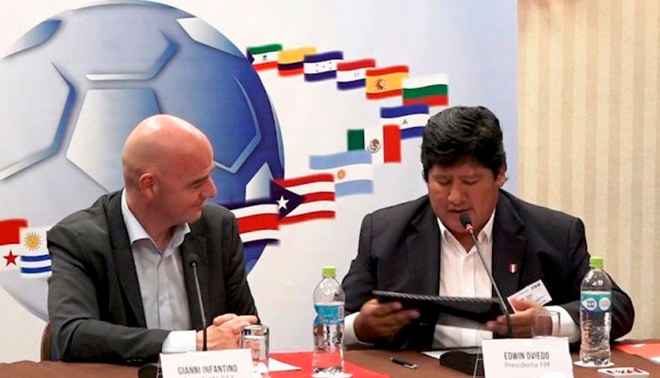In 2015 businessman Edwin Oviedo took over as the president of the Peruvian football federation after his predecessor Manuel Burga had been arrested in Zurich over FIFAGate. Now Oviedo is arrested and facing charges as the head of a mafia organization with blood on their hands.
By Pål Ødegård
Photos: Johnny Aurazo/El Comercio
As the Peruvian national team was hours away from their opening match against Denmark in the 2018 World Cup in Russia this summer, the president of the Peruvian federation must have felt on top of the world. Not only had the national team qualified in style after a difficult start, the first World Cup participation since 1982. The doping debacle surrounding their star striker Paolo Guerrero had been settled, against all odds, and was allowed to participate in the finals. And all this had been achieved just three years after his predecessor Manuel Burga was apprehended by Swiss federal police and the FBI in Zurich among the others implicated in the FIFAGate scandal (Burga eventually became the only one so far to get away scot free from the courtrooms of New York City, on a technicality). Not bad for a man with little knowledge or interest in football, he must have thought to himself. Edwin Oviedo had simply taken advice from those around him, and followed them. His popularity at home was sky high. Some even clamoured for Oviedo to become the president of the country. But best of all, it had distracted all the attention from a small problem at home.
The assassination
On an October morning in the small town of Tumán in North-Western Peru, Rosalía Vera Casusol had just said goodbye to her husband who left for work at the nearby sugar plant, where he had worked for over twenty years, a...



